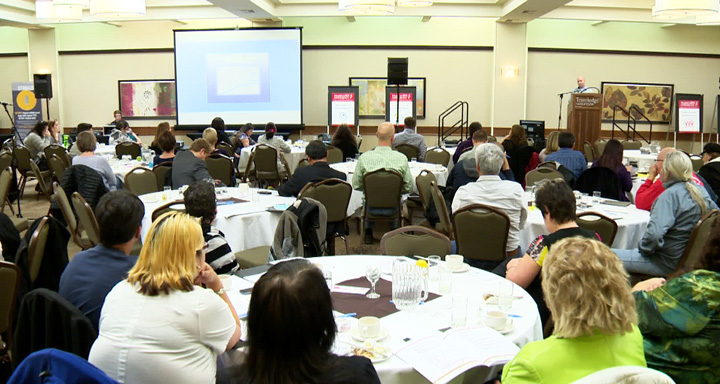SASKATOON – Representatives are gathering in Saskatoon for the first annual Prairies HIV Conference prior to the 2012 HIV/AIDS statistical report being released.

The conference’s theme this year is ‘Culture and the Continuum of HIV Care’ and concludes Tuesday at the Travel Lodge. Two days of presentations and interactive workshops will focus on interventions, prevention, diagnosis and treatment.
In Saskatchewan, there were 177 new Human Immunodeficiency Virus (HIV) cases in 2012, a five per cent decrease over the previous year.
The number of HIV tests performed has gone up 23 per cent since 2009.

Get weekly health news
The provincial government is crediting its HIV strategy, the health sector and community collaboration for helping reduce new cases.
“The fact that one person is on treatment and has an undetectable viral load it lowers the risk of transmitting disease to their partner by a factor of 60 per cent, so it is powerful,” said Dr. Johnmark Opondo, medical health officer with the HIV Provincial Leadership Team.
Newly diagnosed cases of HIV in First Nations people living on reserves has doubled since 2009.
In the past two years, testing has been available on five reserves but seven more are being added this month.
After three months of infection, HIV can be detected by standardized testing over the course of several days. Point of Care (POC) tests are also available in the province for preliminary results in a matter of minutes.
The HIV Provincial Leadership Team reminds people that although there is no cure for Acquired Immune Deficiency Syndrome (AIDS), once someone has tested positive, they can still live a healthy life.
Following a positive diagnosis, doctors will put patients on medications that can delay the progress of the virus.
More information on HIV/AIDS and clinics can be found at the ministry of health.


Comments